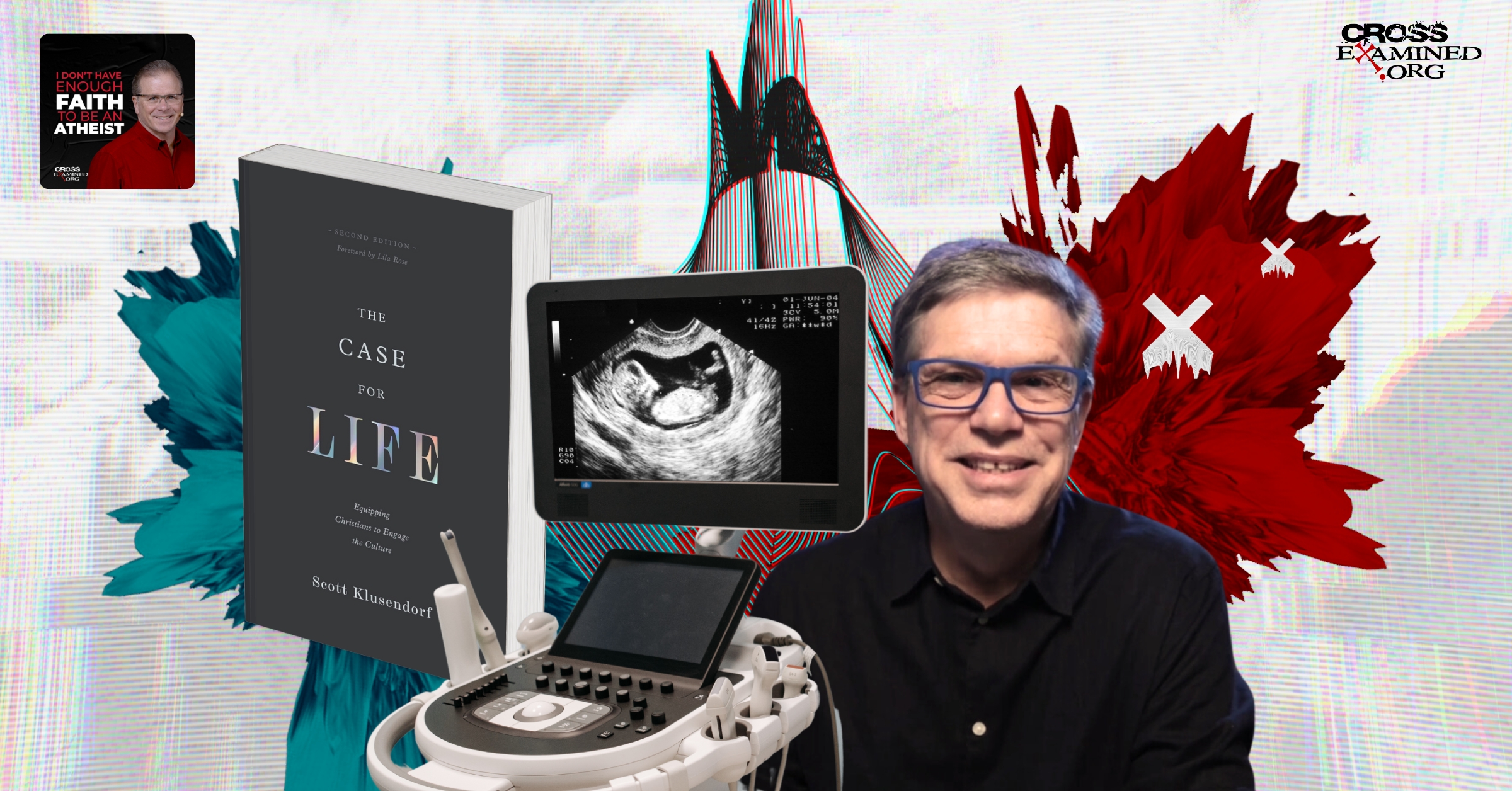Each Easter season, approximately 400,000 churches across the U.S. gather to celebrate the resurrection of Jesus: one story portraying the faith of over two billion people globally. But have we grown ignorant of a driving factor behind the eternally preordained plan? Might we have entirely missed what Jesus cited as making His public execution necessary? The cross has come to manifest the forgiveness of sins, and rightfully so. Notwithstanding, in the time preceding His trial, Jesus made it exceedingly clear the plan was multifaceted . . . and He had skeptics in mind.
Just One Problem
Modern recollections of resurrection Sunday tend to focus solely upon substitutionary atonement. Christians gather to reflect on this distinctive of their faith. The New Testament tells us Jesus, “though he was in the form of God, did not count equality with God a thing to be grasped, but emptied himself, by taking the form of a servant, being born in the likeness of men. And being found in human form, he humbled himself by becoming obedient to the point of death, even death on a cross.” (Phil 2:6-8).
What good does this do, however, for those who reject the historicity of the New Testament accounts? How can a believer pique the interest of a skeptic with a story of the miraculous when the individual has spent his/her entire life saturated in a culture of naturalism and anti-religiosity? Far too often, well-intentioned believers hope to present the story of the cross in just the right way, at just the right time, with just the right fervor as to convince someone to commit their life to Jesus. There’s just one problem. No matter how beautiful the story, how ardent the presentation, and how well-meaning the speaker, simply explaining the meaning of a story typically won’t communicate that it actually happened. [1]

Was there a real man named Jesus who was the son of a middle eastern carpenter? Is there evidence of His trial under Roman prefect Pontius Pilate circa 30 C.E.? Why shouldn’t these accounts be dismissed alongside hundreds of other religious origin stories that Christians are so quick to label fiction? These are the questions seekers need answered. The effective evangelist must not forego the foundation of historical facts before delivering the story’s ramifications. Examine the words of Jesus leading up to the crucifixion. What were the intentions of the plan He devised from eternity past? He assuredly had to die to bear our sins, but was this His mission’s sole effort? Might there be an angle to the story that we have turned a blind eye to for far too long?
Have We Overlooked Something here?
The public ministry of Jesus is thought to have been between 2-3 years in length. The first year included events that set the foundation for the ministry such as Jesus’s baptism, the calling of the disciples, and the Sermon on the Mount. From that point forward He was adamant about foretelling how His earthly ministry would conclude. Both Matthew and Luke record an occasion in which Jesus heals a man who was both blind and mute (Mt 12:22-42; Lk 11:14-32). Crowds of suspicious onlookers began to gather. Despite bearing witness to this healing, some began requesting additional miracles. How would you respond? Is Jesus obligated to show them another sign just minutes after putting the supernatural on display? He replies with a warning, but a bargain deal, nonetheless. He says,
“An evil and adulterous generation seeks for a sign, but no sign will be given to it except the sign of the prophet Jonah. For just as Jonah was three days and three nights in the belly of the great fish, so will the Son of Man be three days and three nights in the heart of the earth” (Mt 12:39-44; )[2].
He will not perform miracles for mere amusement. The greatest miracle of all, however, has just been foretold. Matthew 16:4 records another encounter of the same sort. Immediately after feeding the 4,000, the cynics demand another sign. Jesus does not waver in His response. If they are genuinely seeking the truth, the coming sign of Jonah will suffice.
Later, Jesus gives His disciples yet another sobering forewarning. All three of the synoptic gospel writers see fit to include this prognosis (Mt 16:21, Mk 8:31, Lk 9:22). Jesus clearly states that He must suffer under the elders, priests, and scribes and ultimately be killed, but He doesn’t stop there. He specifies that on the third day He will be raised back to life. A good rule of thumb in biblical interpretation is to pay special attention to repetition. Repetition is emphasis. Jesus has twice referenced the sign of Jonah, therefore communicating His resurrection to come. And now we are given a third instance in which He plainly explains He will be killed and raised on the third day. To the modern Christian’s surprise, these passages are not accompanied by lengthy discourses on substitutionary atonement. Commentary on the forgiveness of sins can be found across the New Testament, but they tend not to be directly partnered with these predictions of Jesus’ death and resurrection. It is as if these soon to be fulfilled prophecies have a message of their own . . .
Next, Matthew and Mark describe another form of this prediction. This time, while passing through Galilee, Jesus simply says, “The Son of Man is going to be delivered into the hands of men, and they will kill him. And when he is killed, after three days he will rise” (Mt 17:22-23; Mk 9:31). Surely, by now He has sufficiently made the point, right?
Later, while traveling up to Jerusalem, each of the Synoptic gospels (Matthew, Mark, and Luke) corroborates yet another iteration of that prophecy. Jesus says, “See, we are going up to Jerusalem, and everything that is written about the Son of Man by the prophets will be accomplished. For he will be delivered over to the Gentiles and will be mocked and shamefully treated and spit upon. And after flogging him, they will kill him, and on the third day he will rise” (Mt 20:18-19, Mk 10:33-34, Lk 18:31-33).
We have yet to mention John’s contribution. John 2:19-22 records Him saying, “‘Destroy this temple, and in three days I will raise it up.’ The Jews then said, ‘It has taken forty-six years to build this temple, and will you raise it up in three days?’ But he was speaking about the temple of his body. When therefore he was raised from the dead, his disciples remembered that he had said this, and they believed the Scripture and the word that Jesus had spoken.” Subsequently, John 10:17-18 tells us Jesus has the authority to lay down His life and take it up again, and His Father has given Him charge to do just that.
What’s the Point?
We have seen seven distinct instances of Jesus predicting His own death and resurrection, and there are more passages, not listed here, that do the same. Many of these examples are brief and lack any lengthy theological reflection. What does all this achieve? Why dedicate so much time to constant reiterations of the same foresight? Only one explanation seems fitting: Jesus had skeptics in mind.
Only one explanation seems fitting: Jesus had skeptics in mind.
Some religions (Hinduism, some Eastern beliefs, etc.) present their teachings in mythic stories that aren’t intended to be treated as historical realities. They aren’t supposed to be literal history, but allegories and symbols for deeper truths. These faiths may have their perks, but they are categorically different from beliefs rooted in history – convictions which must answer to the evidence. Other faiths (Islam, Mormonism) proclaim that their preferred holy book itself is the only evidence necessary to validate its claims. Founders of these religions did not claim to personally perform any public miracles to substantiate their claims. Rather, their respective holy books are the best they have to offer when it comes to validating a supernatural origin. For example, the 29th chapter of the Quran responds to an objection from Jews and Christians who doubt its divine inspiration. It says:
“And they say, ‘Why is it that no signs (miracles) have been sent down to him (Muhammad) from his Lord?’ Say, ‘Signs are only with Allah, and I am only a plain warner.’ Is it not sufficient for them that We have sent down to you the Book that is being recited to them? Surely in it there is mercy and advice for a people who believe.” (Surah 29:50-51, Translated by Mufti Muhammad Taqi Usmani, Quran.com)
Faiths such as this demand submission solely based on the testimony of the writing itself. There is no tangible demonstration of the supernatural. This is where the cross rises above the rest. The skeptic-turned-believer, Paul, confidently proclaims:
“if Christ has not been raised, then our preaching is in vain, and your faith is in vain . . . And if Christ has not been raised, your faith is futile, and you are still in your sins . . . If in Christ we have hope in this life only, we are of all people most to be pitied” (1 Cor 15:13-19).
The Bible begs to be tested. Paul is begging people to test the claims of Christianity. He employs the same logic Jesus did as He repeatedly publicized the prediction of His death and resurrection. This was not simply retroactively ascribing significance to an otherwise unlikely event. This was just the opposite. Jesus had already demonstrated supernatural abilities over nature, sickness, and demons. The only further proof He could offer was to demonstrate His power over death itself.
Brave the Questions
We owe it to ourselves to accept the challenge the Bible offers. One of two outcomes are to follow. If proven false, we can do away with the bore of manmade religion and traditions of old. If it’s true, however, life is injected with a new purpose – it’s all real. Whichever the outcome, we can rest assured that we were brave enough to pursue the evidence wherever it leads. The God of the Bible does not seek blind faith. He wants commitment to the truth. Christians should immerse themselves in the mission God has set before them while skeptics should eagerly invite the challenge the New Testament offers. If true, the stakes could not be higher. The cross was never intended to appeal to wishful thinkers. It was purposed with skeptics in mind.
References:
[1] Caravaggio, “Reproduction of the Incredulity of St. Thomas” [oil on canvas] (1601), currently held at Potsdam, Germany. Public domain. Accessed 3 April 2024 at: https://en.wikipedia.org/wiki/The_Incredulity_of_Saint_Thomas_(Caravaggio)#/media/File:Der_ungl%C3%A4ubige_Thomas_-_Michelangelo_Merisi,_named_Caravaggio.jpg
[2] All verse references are to the English Standard Version (ESV) unless otherwise noted.
Recommended Resources On This Topic
Jesus, You and the Essentials of Christianity by Frank Turek (INSTRUCTOR Study Guide), (STUDENT Study Guide), and (DVD)
Cold Case Resurrection Set by J. Warner Wallace (books)
Person of Interest: Why Jesus Still Matters in a World that Rejects the Bible by J. Warner Wallace (Paperback), (Investigator’s Guide).
Early Evidence for the Resurrection by Dr. Gary Habermas (DVD), (Mp3) and (Mp4)
Shane Geisler is the Senior Digital Content Manager for CrossExamined.org. He holds three degrees from Liberty University which include a Bachelor’s degree in Global Studies, a Master of Arts in Theological Studies, and a Master of Arts in Christian Apologetics. He is a native of Germantown, Maryland and spent four years on the Liberty University NCAA Division 1 soccer team. He and his wife, Elise, reside in Nashville, Tennessee. Shane seeks to combine evidential apologetics and global missions to make the best evidence of the gospel accessible around the world.











